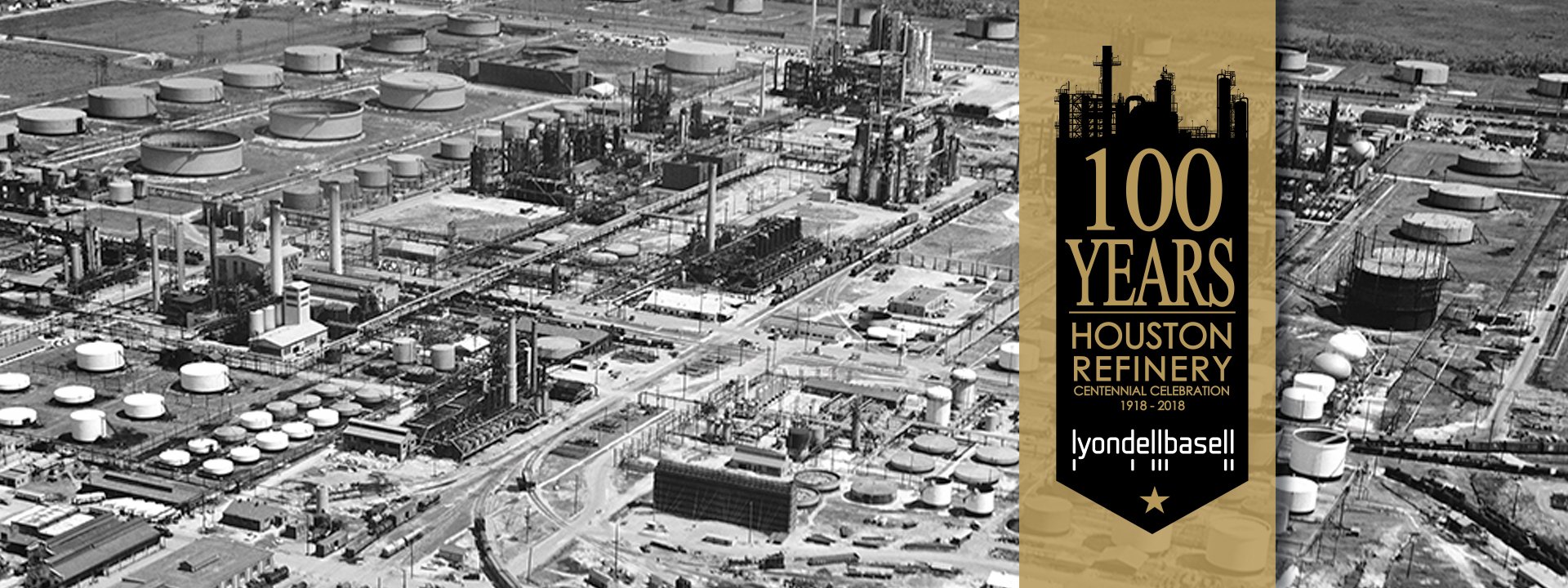Our commitment as a socially responsible company means that we operate our facilities in a manner that protects people and the environment and preserves our world for future generations.
The Houston refinery employees take their responsibility as environmental stewards seriously. They operate the facility in a manner that helps preserve our world for future generations.
The company has installed pollution control equipment using advanced technologies, which has reduced air emissions by 80 percent during the past 10 years.
The ultra-low sulfur diesel fuel and high octane gasoline products produced by the refinery help vehicles operate cleaner to reduce the environmental footprint of mobile emission sources.
The refinery uses cogeneration technology to conserve energy and improve efficiency, reducing the amount of electricity required to operate its units.
LyondellBasell is committed to having a safe workplace for employees and contractors. We believe all workers should complete each day with zero injuries, so we focus on process safety and the effective maintenance of our plants' equipment to achieve zero failures. These values enable our employees to implement sustainable environmental programs that benefit our communities and achieve Goal Zero.
Operational Excellence
Operational excellence is LyondellBasell's broadly institutionalized and disciplined management system to achieve reliable and measurable performance. This management system enables us to drive continuous improvement in every aspect of our business; it includes the Manufacturing Operational Excellence Principles of Safety and Health, Environment, Quality, Reliability, Cost and Efficiency, People and Community.
Safety Performance
The Houston refinery continues to improve its overall safety performance. Employees have achieved noteworthy safety milestones, such as working one million hours without a lost-day work injury, and one million hours without an OSHA recordable injury. Our goal each day is zero injuries, and all Houston refinery employees and contractors take that responsibility personally.
Emission Reductions
From 1999 to 2009, the Houston refinery reduced toxic release inventory (TRI) air emissions from 548 tons to 129 tons, a 76 percent reduction. The refinery has specifically focused on its benzene emissions, with a reduction from 62 tons in 2005 to 16.7 tons in 2008, a 73 percent reduction.
Energy Efficiency
Approximately 150 energy efficiency projects that have been implemented since 2004 amount to 9.5 trillion BTU in energy efficiency improvements. Assuming 20,000 travel miles per car per year, and a 20 mpg average consumption, our energy improvement is equivalent to taking 82,500 cars off the roads. There are environmental benefits, as well. Since most of our improvements involve natural gas or fuel gas combustion, the impact is lower CO2 emissions. These projects have helped lower the CO2 emissions by 555,000 tons.


